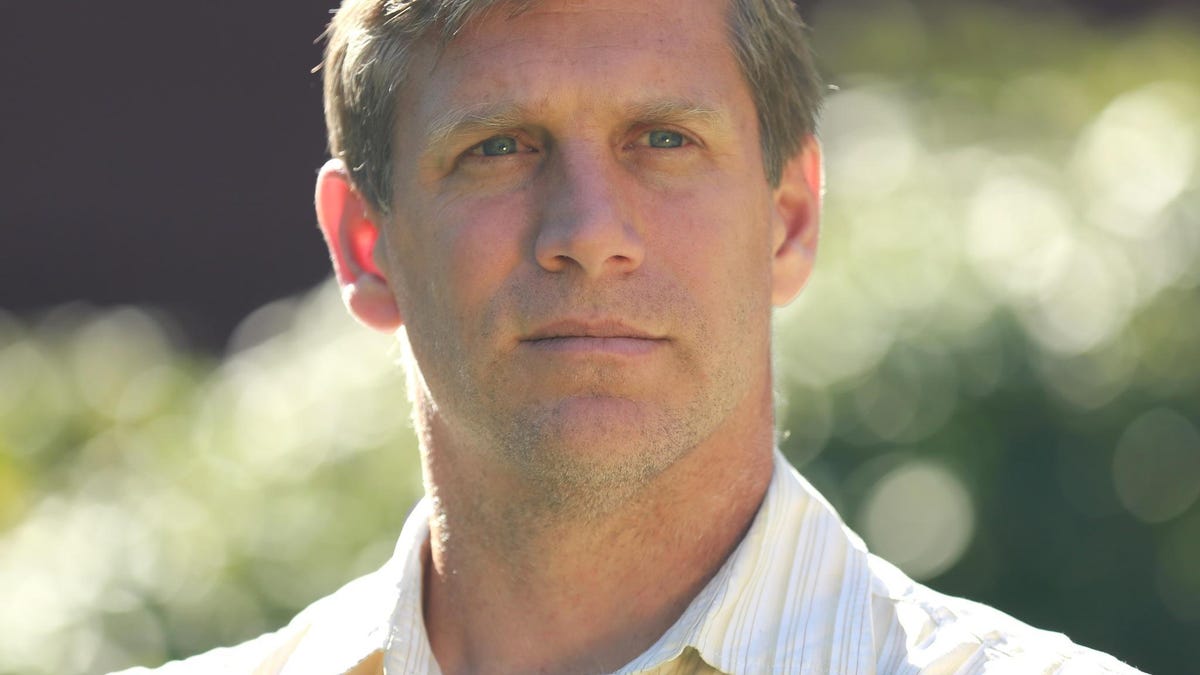The surprising way Transhumanist Zoltan Istvan could make it to the White House
CNET exclusive: The only pro-immortality candidate could eventually team up with one of the big names in the race.

A Transhumanist veep?
Transhumanist Party candidate Zoltan Istvan admits his campaign as a write-in candidate for president is a long shot. But the California journalist and author, who has a pro-science and technology platform, may have a new path to working at 1600 Pennsylvania Ave. next year.
Istvan said in an email Tuesday evening that he recently flew across the country to be interviewed by one of the remaining major party candidates to fill the slot of vice president on a ticket.
"I don't want to say more, out of respect for the presidential candidate and their privacy. But I do have my fingers crossed," Istvan writes. "It would be historic if I was picked, as I'd be a fiercely pro-radical science and technology candidate, as well as being vocally nonreligious (something whose time has come and will appeal to the youth, intellectuals, and Bernie Sanders fans)."
The Sanders, Hillary Clinton and Donald Trump campaigns did not immediately respond to requests for comment.
Istvan wouldn't name the candidate that interviewed him to be a potential running mate but did say this about how he would approach the veep job:
"I see a vice presidential role similar to how Al Gore was when he ran with Bill Clinton and was pushing environmentalism -- which at the time was still a pretty far-off concept for everyone. In 10-15 years, transhumanism will be just as big as environmentalism."
Huh. Al Gore and Bill Clinton. Bill's last name sure has been kicking around the talk of this election season for some reason...
Also, back in November, Istvan said this about his real political ambitions to the BBC:
"What I was hoping and what I have done myself is I've actually emailed the Hillary Clinton team and said, 'Look, are you looking for a technology advisor? Are you looking for somebody later to fill a role in the White House, like a technology person or a science person in a Cabinet position, or even a deputy position?' That would be a really good way to get a foot in the door."
So, Istvan is a Hillary fan. He also told me that he thinks his "many left-leaning positions could dramatically help a presidential candidate bring in all the Bernie Sanders supporters -- which number many millions."
Just connecting a few dots there, how likely is a Clinton / Istvan ticket? Conventional wisdom says an unknown candidate representing a party that sounds like something out of a sci-fi novel (and is in fact included in our upcoming crowdsourced science fiction novel) might not be a good pick for vice president, but conventional wisdom has been wrong about much of this election.
In an election in which what once seemed impossible has become feasible, perhaps a vice president who believes in using science and technology to do no less than defeat death itself isn't as unlikely as it sounds.

